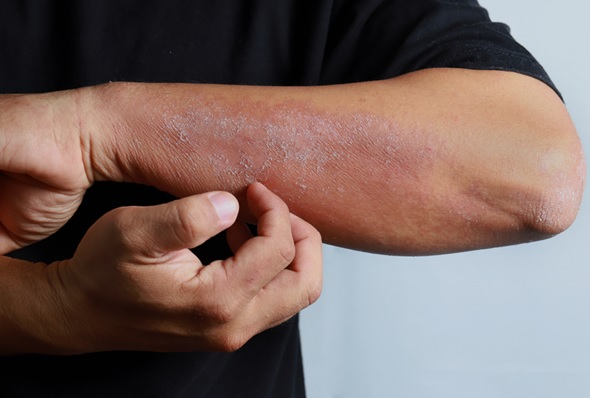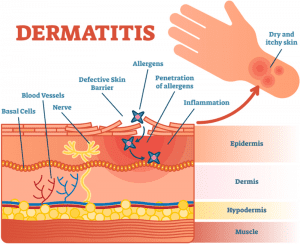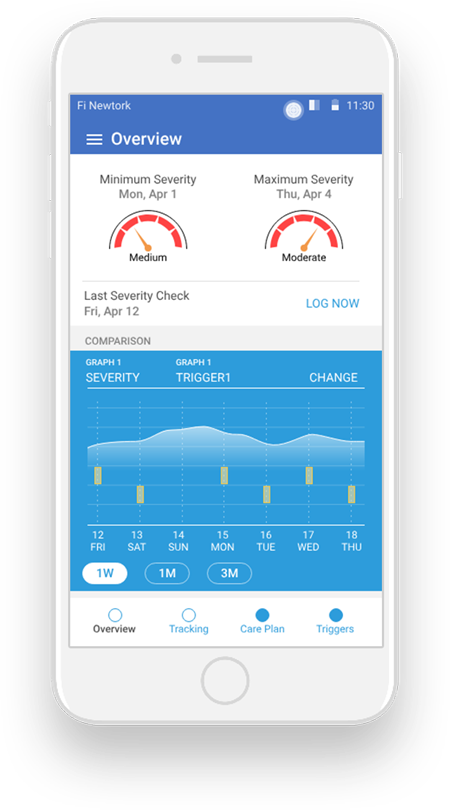Things you should know to detect Eczema Infection

Table of content
Eczema Infection
Eczema, also known as Atopic Dermatitis, a term marked by Dry, Red, Itchy and inflamed skin, itself a chronic condition that requires proper management, But When Such condition is caught by an Infection it only worsens it. The routine Eczema Treatment will not be effective in such condition and requires special care.
Infection is more common in wet eczema than Dry eczema because the former provides the Infection causing germs (Micro-organisms) a favourable environment to survive, grow and multiply.
One of the other common reason for the infection is the habit of uncontrolled scratching. Continuous scratching damages the layer of the skin which acts a barrier causing bruises.



These Open bruises from scratching dermatitis permit germs and microbes resulting in infection.
Hence you might have noticed that the Eczema Infection is more common amongst the children because they don’t have control over scratching and also their skin has less resistance to germs.



Adults on the other hand somehow control the scratching, tempted by the itch in eczema. It is also common with the individuals who are currently on eczema treatment but have frequent sores and open wounds related to their eczema condition.
Atopic Eczema itself is not infectious or contagious (it cannot be spread to another person), but it can become infected if germs set in, which can pass on to person nearby as well. There are different kinds of infections that can develop with eczema also known as Atopic Dermatitis and these Infections can develop in or on eczema anywhere on the body right from the scalp to toe.
Causes of Eczema Infection
Infections in Atopic Eczema are caused by a variety of potential, bacteria, fungi or viruses. Coming up next are some of the common microbes which accounts for causing Eczema Infection.
- Bacterial – Staphylococcus aureus (Staph infection)
- Fungal – infections, such as ringworm(tinea)
- Viral – herpes simplex virus



- Bacteria – Staphylococcus aureus, Streptococcus
Staphylococcus aureus is a bacterium which is found in almost all people with Eczema. They cause colonization, although may not infect the lesions. In 20% of healthy adults without eczema, Staphylococcus aureus lives as a commensal organism (The microorganisms which live on the skin without harming the host). However, when eczematous skin gets damaged these bacteria can get in and cause infection.
- Viruses – commonly Herpes Simplex Virus 1 (HSV 1)
Presence of Eczema lowers the resistance to viral infections. HSV 1 virus spreads from skin to skin contact. HSV which commonly causes Cold sores can cause severe infection in eczematous rashes. This is also known as Eczema Herpeticum. It is an extensive skin eruption with vesicles which occur on eczema rash. Eczema Herpeticum commonly occurs in infants and children with severe eczema. These clusters of small blisters are itchy and painful.
- Fungal infections – Candida (Thrush) can develop in warm and moist skin folds. When the eczema is in flexures such as elbows, behind knees or around abdominal folds, candida can freely infect eczema especially when the skin is damaged by scratching. If the person lives in warm and humid climates, increased sweating can cause infection to spread.
Tinea (Dermatophytes) or Ringworm can also infect eczema rashes causing ring like reddish patches or infect in between toes leading to Athletes foot.
When Eczema rash is infected, it worsens Eczema and allowing it to spread more quickly and making the Treatment and healing process difficult.
Diagnosing infection in Atopic Dermatitis is not always straightforward. But there are a few signs and indications which you can look up to and take prompt actions once you notice them. It’s critical for people with eczema or caregivers of children with eczema to get familiar with the indications of infected eczema so you can look for the proper treatment. Proper treatment at the right time during the infection will help to avoid further complication.
The symptoms of infected Eczema will be very different from normal eczema which suddenly starts getting worst spreading the rash across the body in no time.
Signs and Symptoms of infected Atopic Eczema



- The skin area becomes more inflamed (swollen, hot and red)
- The eczematous lesions get blisters, ‘boils’ and cysts with red or yellow color spots with pus
- pus/weepy fluid (often yellow or green) coming out of the skin and crusts or scabs
- painful skin – “like you’ve got cuts everywhere”
- Very tired and unwell feeling drains the person
- Sudden flaring of eczema all over the body.
- Lesions become sore and painful with a tender to touch in Eczema Herpeticum.
- A person with infected eczema will also experience extreme Itching and burning
- In more advanced cases, a person may experience more severe symptoms including fever, chills, aches, and fatigue
Complications in Eczema Infection
Atopic Eczema Infection may also lead to more dangerous complications such as a serious staph infection that may cause a blood infection known as sepsis (A life-threatening condition) if left untreated.
Some of the other complications include
- Resistance to the topical steroids due to continuous and prolonged use
- Increase in blisters and Itching out of control
- Prolonged Eczema flare and Scarring
- It may cause a growth problem in some children’s too.
When to Approach a Physician?



Because it’s not always obvious if eczema is infected, it’s important to get help from medical professionals.
If an individual is suffering from chronic eczema, he should approach the physician immediately in case he develops a fever, experience chills, Experiencing tiredness/fatigue, or develop signs of infection, such as oozing blisters and excessive itchiness.
Infants and young children with infected Eczema should be taken for medical care as soon as possible and monitored for a clinical outcome more carefully when encountered with Eczema Infection.
Check your Eczema score to understand about your condition well. Manage your eczema by planning the eczema treatment that best suits you.


